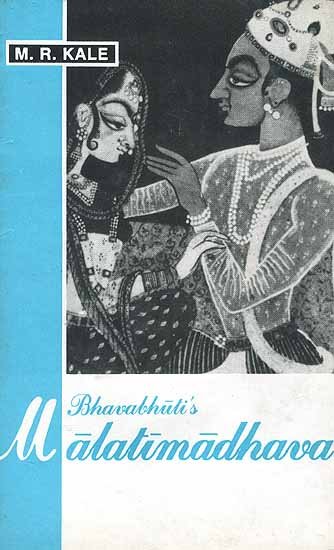Malatimadhava (study)
by Jintu Moni Dutta | 2017 | 52,468 words | ISBN-10: 8120813057 | ISBN-13: 9788120813052
This page relates ‘Note on the Malatimadhava’ from the English study on the Malatimadhava of Bhavabhuti:—A Prakarana type of Drama in ten acts revolving around the love-story of Malati (from Padmāvatī) and Madhava (from Vidarbha). This study discusses the history of its author and the literary, social, religious, historical and cultural aspects of the Malatimadhava.
Part 2 - A Note on the Mālatīmādhava
The Mālatīmādhava is a Prakaraṇa in ten acts. This Prakaraṇa is composed by Bhavabhūti, an eminent dramatist of Sanskrit literature. The author has taken the theme of the Mālatīmādhava from the Bṛhatkathā. Here Bhavabhūti has portrayed the love-story of Mālatī, the heroine, daughter of a minister of the Padmāvatī and Mādhava, the hero and son of the minister of Vidarbha. He has made clever arrangement of the events leading to the union of Mālatī and Mādhava. With this main story Bhavabhūti skillfully interwoven the love story of Makaranda, friend of Mādhava and Madayantikā, sister of Nandana. He has shown excellent constructive skill in contriving a love marriage between Mālatī and Mādhava.Here Buddhist nun Kāmandakī has played significant role in uniting the hero and the heroine.
This Prakaraṇa is variegated in characters as it is evident from the variety of incidents such as saving Madayantikā and Mālatī from the tiger and Aghoraghaṇṭa respectively, the conflict of Mādhava and Makaranda with the city guards, lively description of burning ground along with the vivid picture of goblins that resides in the burning ground and the impersonation of Mālatī by Makaranda.
Moreover, Mālatīmādhava contains description of supernatural elements which were being attained by the practice of yoga which directs the whole course of events from tragic to a blissful end. Bhavabhūti himself remarks that Mālatīmādhava is profound representations which is too difficult for ordinary people to understand on account of the excess of sentiments delineated,an interchange of actions attractive owing to affection, daring acts fully assisting the progress of love, wonderful plots, and dexterity in dialogue.[1] In his book Macdonell has mentioned about Mālatīmādhava that the piece is a sort of Indian Romeo and Juliet with a happy ending, the part played by the nun Kāmandakī was similar to that of Friar Laurence in Shakespeare’s drama.[2]
Footnotes and references:
[1]:
